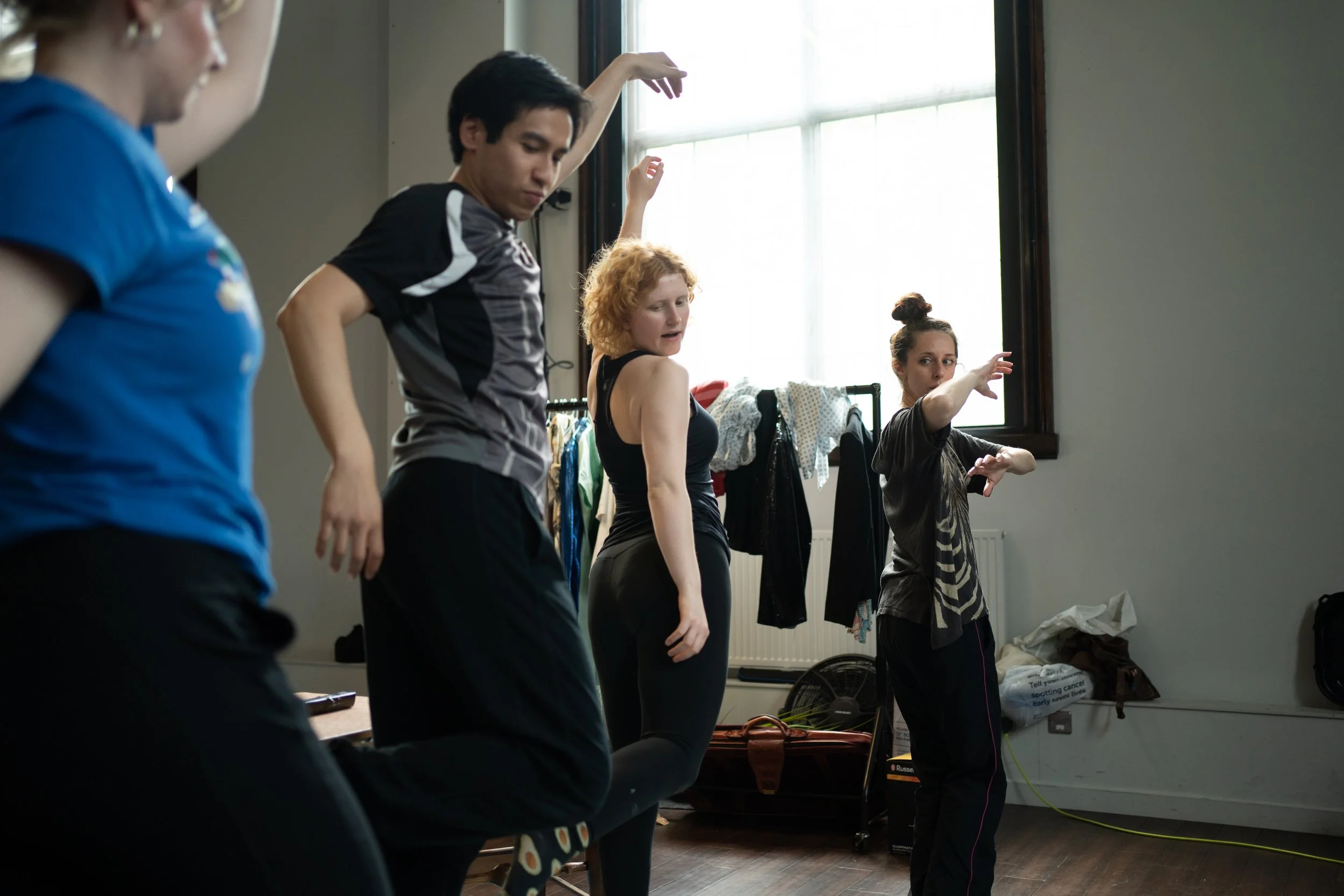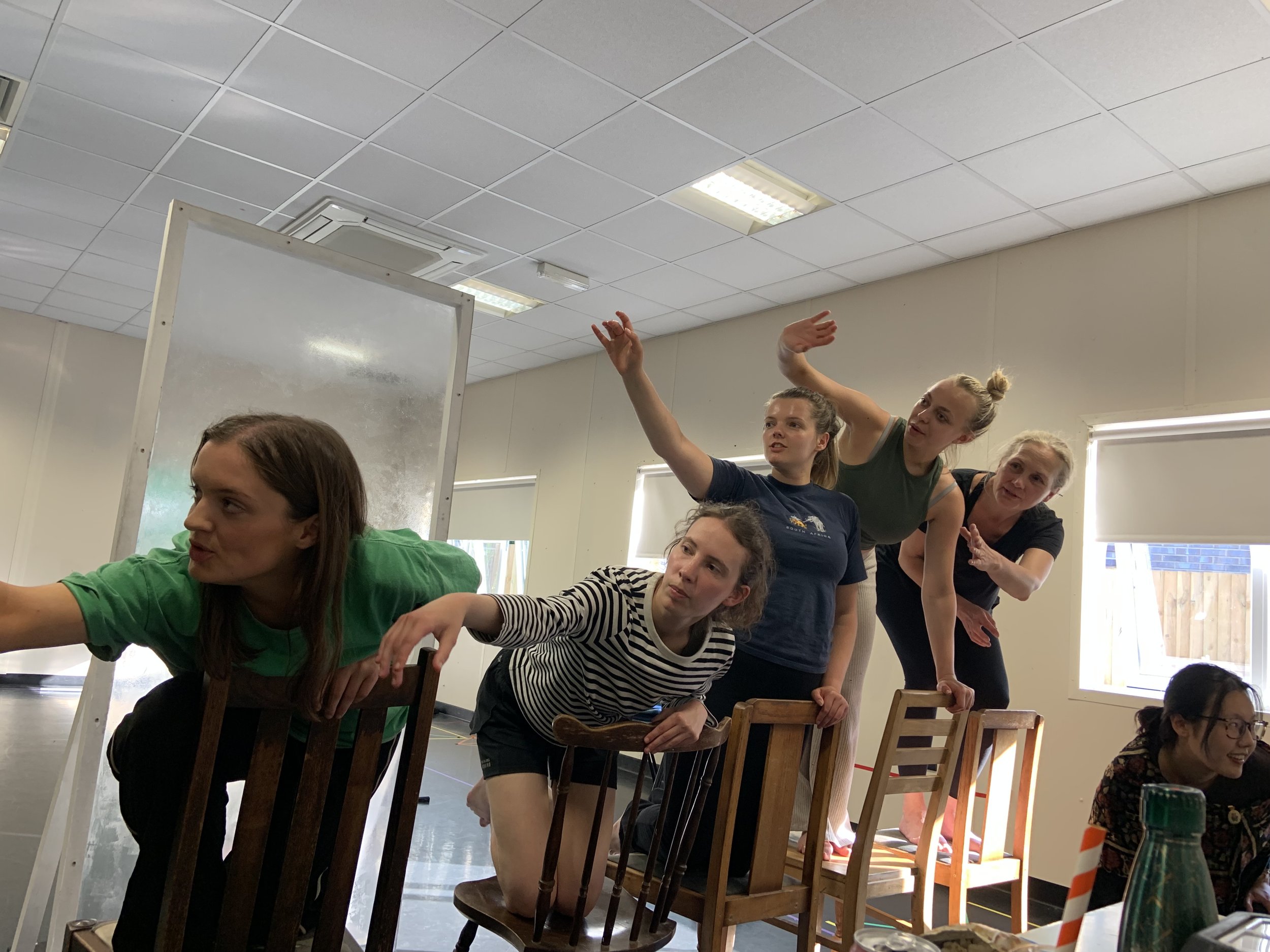Workshops
Coaching
Facilitation
Some of the most cherished moments in my career so far have been in teaching and facilitation. As artists our craft and understanding deepens exponentially when we have the opportunity to pass along our work to others. It has been an immense privilege to teach at various institutions across a diverse array of age groups and levels in training from primary school through to post graduates.
In addition to faculty positions at MA level drama schools I also host several workshops in directing, movement, and devising.
As a director with more than ten years of casting experience I also provide coaching for audition, character, and scene work.
Movement
The movement workshops offered are based in non-hierarchical practices. My primary workshop is in Mary Overlie’s The Six Viewpoints (https://www.sixviewpoints.com/overview), offering engagement with materials of performance making as are experienced in the physical body of the actor. Secondary workshops include development of the Physical Life of the Character, Ensemble and Physical Storytelling, and Pathways to Theatremaking which approaches devising and choreography from a movement impetus.
Devising
Devising workshops can be offered in two parts; Pathways to Theatre Making or Adaptation. The Adaptation course focuses on text based devising process that begins with one or more source texts (that can include Verbatim) and utilises devising techniques to create or re-create story from those sources. Pathways to Theatre Making is a movement based devising course that utilises both ensemble and devising techniques to manifest story. We look at Moment Work, Vakhtangov, Epic Theatre, Theatre as Ritual, and more.
Coaching
Coaching sessions are usually on an individual and hourly basis for monologue/auditions, scene work, or character development which can include physical life of the character and/or excavation of contextual background. Audition technique includes breathing and physicality, commanding presence, and text work for each piece. If the audition material is a song we look at acting the song in addition to fundamental audition technique.
Directing
There are two Directing workshops offered; Directing Fundamentals and Directing Aesthetics. The Fundamentals course is a beginner overview of Directing theory and practice that includes script analysis, stagecraft, working with actors, and the Directorial process in rehearsal and production. The Aesthetics course is for more advanced directors that are ready to experiment with different styles of theatre and process from Brechtian, Immersive, Physical theatre, and more. Usually this will be a longer workshop culminating in a small project.
The Greek Project
The Greek Project is a semester long workshop on character development. The objective of this workshop is to give actors in training the experience of taking on a character, developing that character with specificity and context, and embodying that character through performance.
This project is modeled off the Period Style Salons created by Loyd Williamson in his movement technique that typically explore characters from either the Elizabethan or Edwardian eras. Our version takes us back to the Trojan War, an era that provides endless opprotunity for heightened stakes and drama with the fall of Ancient Troy and all of the characters involved.
Actors will be assigned one of the characters involved in the Trojan war whom they will have to research and create a performable biography for in the style of a first person monologue. The biographies are choreographed along with other relevant characters to illustrate highlights of that character’s life in the context of the main event, the fall of Troy in the battle between ancient Troy and Greece.
The actors will learn various tools of inhabiting these characters to be able to perform their biographies, and with enough depth and specificity to be able to interact with one another in various improvised moments throughout the event of the salon that culminates in a three hour presentation.





